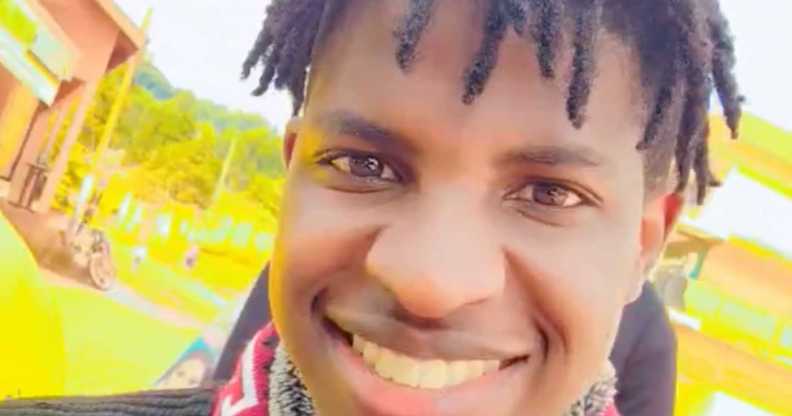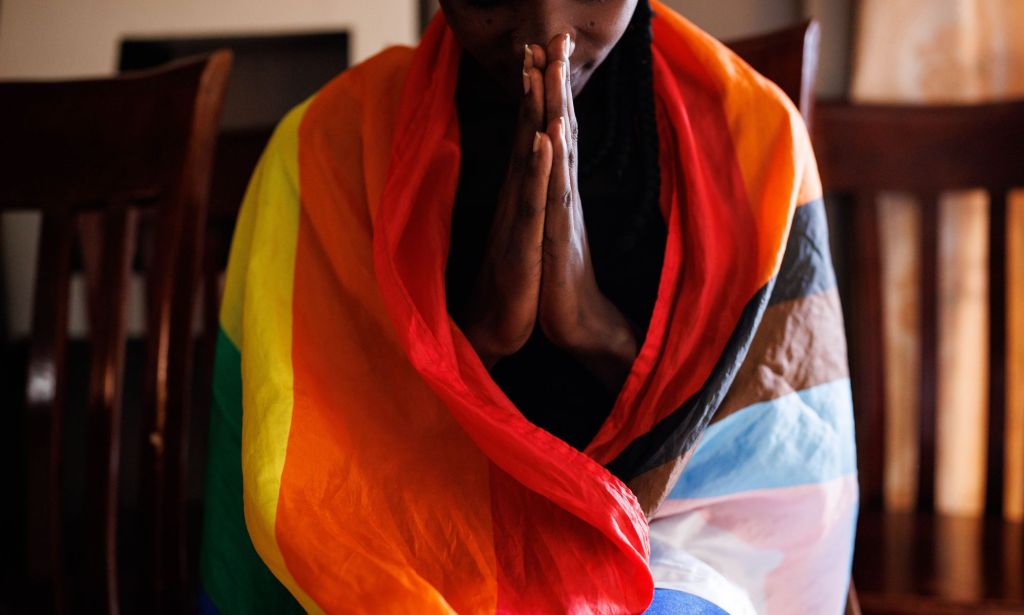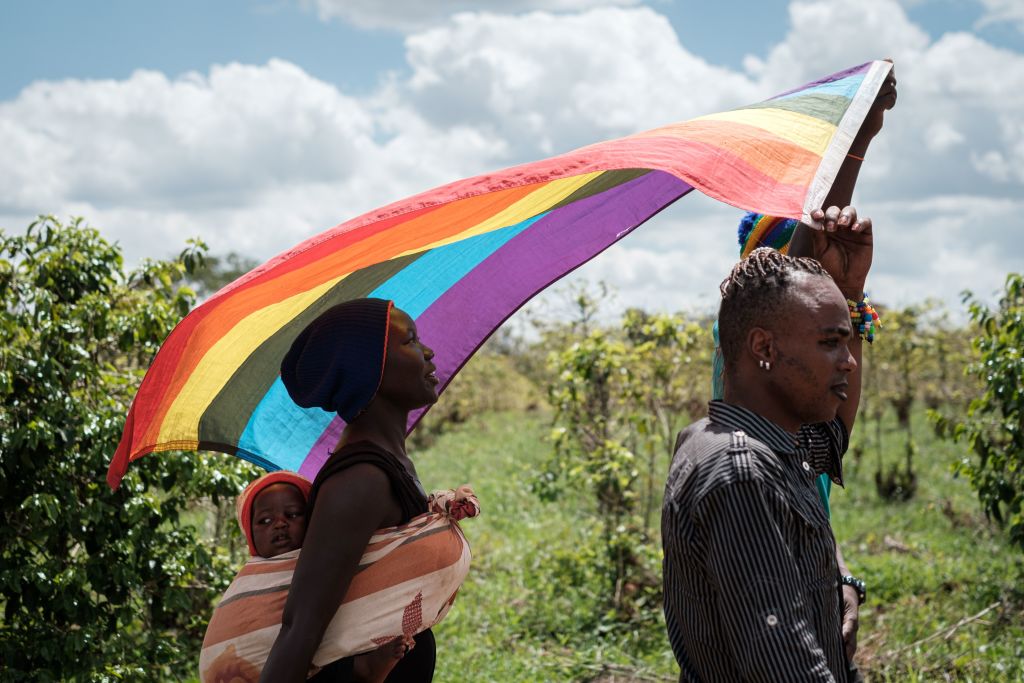Uganda stabbing victim Steven Kabuye blames LGBTQ+ attacks on politicians

Steven Kabuye was stabbed and left in a critical condition (@SteveKabuye5 on X/Twitter)
Prominent activist Steven Kabuye has blamed his brutal stabbing, and similar targetted attacks on Uganda’s LGBTQ+ community, on politicians.
Kabuye, who is the executive director of the advocacy group Colored Voice Truth to LGBTQ was left in a critical condition in hospital after he was “stabbed to near death” last week by two men just meters outside of his home.
Graphic video footage uploaded to Kabuye’s X account shows him lying on the ground with his arm sliced open and a knife sticking into his stomach.
It is the latest attack on a member of Uganda’s LGBTQ+ community following the introduction of the country’s widely condemned Anti-Homosexuality Act last year.

The act, signed into law by President Yoweri Museveni, imposes the death penalty for what it calls “aggravated homosexuality”, which includes sexual activity with disabled people and people who are HIV positive.
It has also incited a spike in targetted attacks on and harassment of LGBTQ+ people by civilians and police, activists have warned.
While being treated for his injuries in hospital, Kabuye told NBC News that he blames the current levels of intolerance in Uganda on politicians “who are using the LGBTQ+ community as a scapegoat to move people away from what is really happening in the country.”
Kabuye’s deadly attack came just under one month after he returned to Uganda.
The activist had gone into exile in Kenya in March after he was targetted with death threats, according to Colored Voice Truth to LGBTQ’s advocacy officer Hans Senfuma.
Kabuye is one of many LGBTQ+ individuals who have had to put their lives on pause and go into hiding after their lives were put at risk.

Speaking to The Guardian, a transgender woman named Arianna recalled being attacked by an angry mob that gathered outside of her house back in October after a TikTok falsely accused her of forcing hormones on young men.
“When they saw me, they started grabbing me and shouting that I needed to die,” Arianna told the publication in an article published on Sunday (7 January). “The only thing I remember next was waking up in hospital.”
Arianna was beaten so badly that she was in a coma for two weeks, and still has bruises on her body.
She is now taking refuge in a safe house on the outskirts of Kampala, where she resides with 20 other transgender people, who are all trying to keep a low profile so as not to be discovered by locals.
“We have no freedom,” she said. “I can’t go to the market, I can’t work, because if I go out, I will be a target.”
Uganda’s Anti-Homosexuality Act has been widely criticised by activists and human rights organisations, as well as the United States, who have announced plans to expand visa restrictions on Ugandan officials.
President Joe Biden described the homophobic Ugandan law as a “gross violation” of human rights.
Additionally, the World Bank cut off all new lending to the African country because its controversial law “fundamentally contradicts the World Bank Group’s values.”
Still, Ugandan officials have shown no signs of letting up or easing up on the deadly law.

